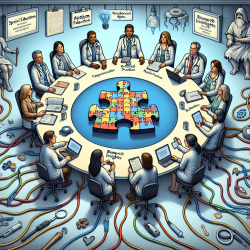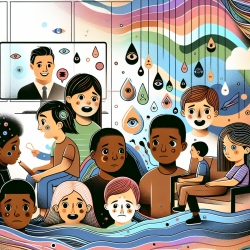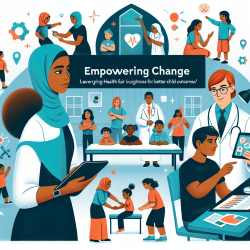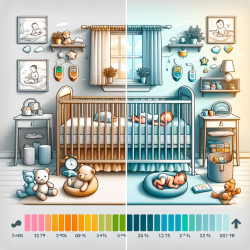Revolutionize Your Speech Therapy Skills: Insights from WHO's Cross-Sectoral Collaboration
As a speech-language pathologist, you're dedicated to improving the communication skills of children. But what if I told you that insights from the World Health Organization (WHO) could help you elevate your practice even further? A recent study titled Conceptual and institutional gaps: understanding how the WHO can become a more effective cross-sectoral collaborator provides valuable lessons that can be applied to our field.
The Importance of Cross-Sectoral Collaboration
The study reveals that WHO's effectiveness is hampered by a narrow, biomedical view of health. This approach limits the organization's ability to address broader determinants of health, such as social and environmental factors. For speech therapists, this highlights the importance of adopting a holistic approach that considers all aspects of a child's life, not just their speech and language abilities.
Key Takeaways for Speech Therapists
- Adopt a Holistic Approach: Just as WHO needs to look beyond the biomedical model, speech therapists should consider the social, emotional, and environmental factors that affect a child's communication skills.
- Enhance Cross-Sectoral Collaboration: Work closely with educators, psychologists, and parents to create a comprehensive support system for each child. This aligns with WHO's need for effective collaboration with other sectors.
- Utilize Data-Driven Decisions: WHO's study emphasizes the importance of using data to inform decisions. Speech therapists should regularly assess and analyze data to track progress and adjust treatment plans accordingly.
Encouraging Further Research
The study also encourages further research into the barriers and enablers of cross-sectoral collaboration. For speech therapists, this means staying updated with the latest research and being open to new methodologies that could enhance your practice.
By incorporating these insights, you can not only improve your skills but also create better outcomes for the children you serve. For more detailed information, you can read the original research paper Conceptual and institutional gaps: understanding how the WHO can become a more effective cross-sectoral collaborator.










